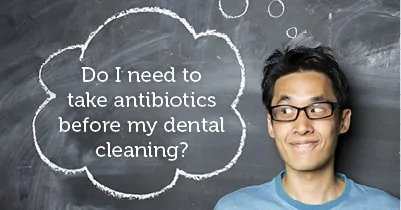Blog
Are You a Mouth Breather?
We all mouth breathe a little bit during a cold, while running, or when lifting something heavy; however, doing it all the time may have negative effects on your dental health. Most people who are chronic mouth breathers do not even realize it, which is especially distressing for all of us at my Douglasville dental office.
People don’t mouth breathe because they choose to, they typically do it because there’s something wrong with the nasal passage. When you can’t get enough oxygen by breathing through your nose, you do the only other thing you can – you breathe out of your mouth. Chronic mouth breathing may result in some serious dental and facial issues.
When a child mouth breathes, it may actually impact the natural growing process of their face. When we use our mouths to breathe, our posture has to change to keep the airway open. In a kid, if mouth breathing and this change in posture is left untreated, it may lead to a long, narrow face, a narrow or flat nose, a short upper lip, and a pouty lower lip. Additionally, it could create some other concerning oral health problems in both children and adults.
Many people don’t know the multitude of issues that are linked to mouth breathing, which worries your dentist in Douglasville. However, the many problems associated with mouth breathing are so serious, they were highlighted in a study conducted by the Academy of General Dentistry. Chronic mouth breathing may lead to overcrowded teeth, a gummy smile, problems with facial development, even with the overall health of your mouth.
Using your mouth to breathe instead of your nose increases your risk for several oral health issues. Breathing out of your mouth dries it out and decreases saliva production. Without saliva, dangerous acids and bacteria are left to create problems like tooth decay and gingivitis. More so, mouth breathing can lead to chronic bad breath, poor sleep, headaches, and sore throats.
Some Signs & Symptoms
- Dry lips
- Crowded teeth
- Snoring and open mouth while sleeping
- Increased number of airway infections including sinus, ear, colds
- Chronic bad breath
If you’re experiencing any of the symptoms of mouth breathing, or if you know you are a mouth breather, call my dental office in Douglasville. We have the ability to recognize mouth breathing and can work with you to fix the problem and get your mouth, and quality of life, back to health.
Serving patients in Douglasville, Lithia Springs, and Villa Ricca.
“Do I Need to Take Antibiotics Before my Dental Visit?”

Taking a precautionary antibiotic before dental appointments, even cleanings, was initially prescribed to those with heart conditions or joint replacements in an attempt to lower the chance of infection. Many believed that bacteria in the mouth could enter the bloodstream during a dental procedure and cause an infection. However, after considerable research, it was concluded that precautionary antibiotic prescriptions were practiced solely on theory, and there is no scientific evidence that preemptive antibiotics help stop infections. In fact, it was determined that overuse of antibiotics could actually do more harm than good.
Using antibiotics as a preventive measure could lead to a worse result than if they weren’t used at all. The overuse of antibiotics leads to an increase in the chance of bacteria becoming resistant. When this happens, the bacteria continue to cause or enhance infection since the same antibiotics no longer kill them. Thus, the bacteria can become stronger and lead to greater damage.
However, while using antibiotics as a precaution against infection during dental treatment isn’t common anymore, there are still some individuals who should take antibiotics before visiting their dentist in Douglasville. Those with artificial heart valves, a history of infective endocarditis, certain congentital heart conditions, or a cardiac transplant that has developed a heart valve problem are some of the patients the American Heart Association recommends the use of precautionary antibiotics.
The best way to make sure you’re getting the protection you need is to ask your primary care physician or cardiologist if preventive antibiotics are appropriate for you.
A healthy at-home oral hygiene routine and keeping up with regular visits to my dental office in Douglasville will go a long way to preventing infection. This duo of oral health care helps keep bacteria levels to a minimum and decreases the risk of more advanced dental treatments.
Serving patients in Douglasville, Lithia Springs, and Villa Ricca.

